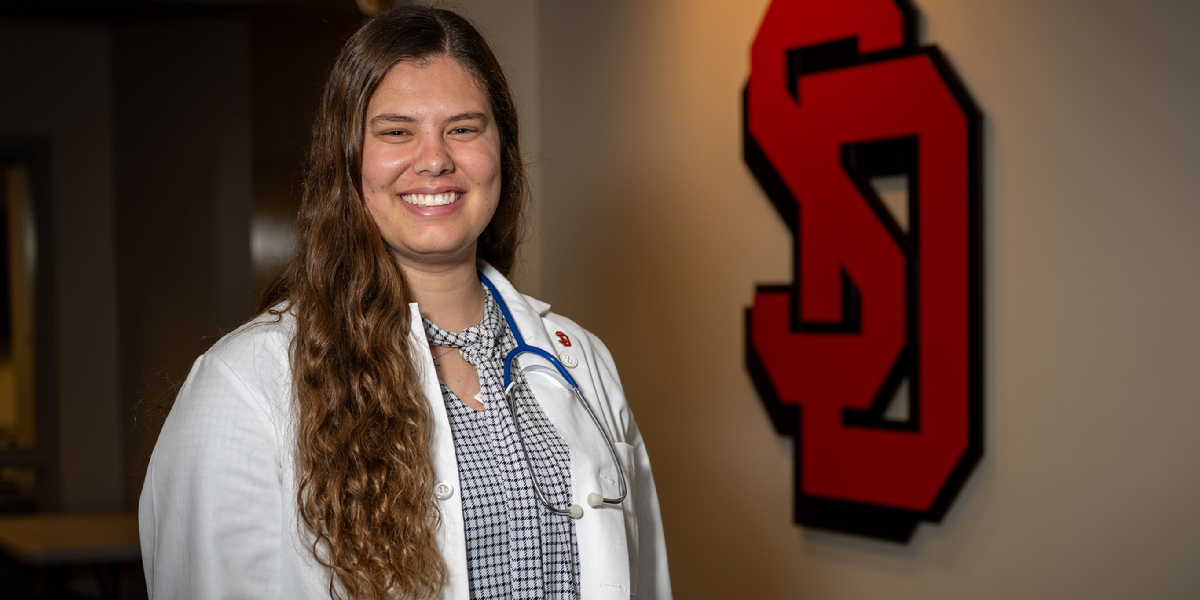Future brain doctor
A double major in psychology and biology-health professions, Hannah engaged both her mind and body as a scholar and student-athlete. When she wasn’t playing with the Raider volleyball team or practicing her high jump, Hannah tutored in biology, chemistry, physics, Spanish, philosophy and math. She also worked as a research assistant for the psychology department, served as an admissions ambassador, assisted a business professor with her dissertation, and participated in prison ministry and Spanish chapel.
What led you to pursue psychiatric medicine?
While I was a student at Northwestern, I served three summers as a risk reduction intern at the South Dakota State Penitentiary. It saddened me to see how many people were incarcerated due to mental illness, along with the significant need for mental health providers to care for them. I love psychology as well as biology, so in pursuing psychiatric medicine, I was able to combine these passions into a calling to help those who are often underserved.
How well did Northwestern prepare you for your graduate studies?
I’ve thanked NWC every day since graduation—and that is not an exaggeration. NWC’s professors taught a large quantity of information, but they also showed me how to study and retain information. In medical school, there is a massive increase in the amount of content consumed each week, but the study techniques I learned at Northwestern equipped me for this transition and helped me become one of the most prepared. At NWC, I was pushed every day to give my best, but I also knew that my classmates and professors were there to help me when I faltered. These high expectations within a supportive environment pushed me toward more growth than I thought possible.
What are the strengths of Northwestern's psychology department?
One of the biggest strengths I am still benefiting from is the focus on research. This is a highly sought-after skill in graduate school and placed me far ahead of most of my classmates. Northwestern’s psychology major includes a couple research classes that teach you to decipher research articles confidently and competently. In addition, each student receives access to a statistical program and learns how to run basic stats on it, which has become one of my most marketable skills. Psychology majors also complete a full psychological research project that gives them experience in gathering, analyzing and presenting data. I talked about my project in every interview, and it greatly helped my CV. There is a major push for more research, and our psych department gives students a large advantage.
How would you describe NWC professors?
The professors at NWC have had a major influence on my life. They treated me more like a peer than a student, trusting and believing in me, and this gave me great confidence moving forward. Whenever I had a new idea or question, they didn’t just give an answer but engaged in dialogue with me and helped me find resources to discover my own answers.
How do you hope to incorporate faith into your future practice?
My faith is the entire reason I am on my current path. Wrestling with the intricacies of mental illness and how it pertains to my views of God can be challenging at times, but I am thankful I am on the frontlines. I can still see the humanity in my patients regardless of what is happening in their lives at that moment in time—they are still children of God, made in his image. Reminding myself of that fact and bearing witness to others is part of providing the best care and eventually some healing.

